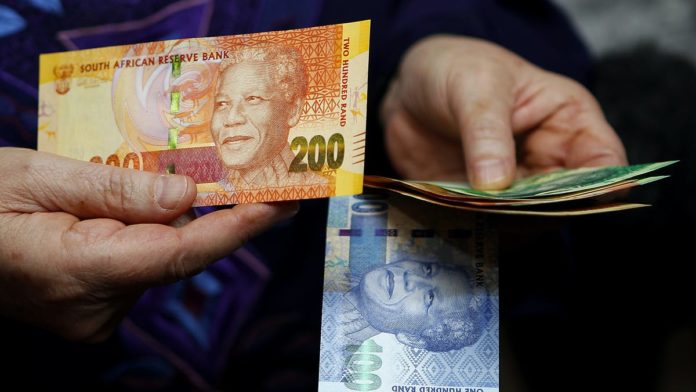The first democratic government in South Africa came into existence in 1994. One of the mandates that were given to the government was to ensure that the inequalities of the apartheid era were clearly redressed. Since then, the government has taken several steps to transform the country’s economy. In a bid to redress the wrong of the past, the government, in 2003, introduced the Broad-Based Black Economic Empowerment Act 53 of 2003 (the BEE Act). Companies that have a high BEE scorecard stand a chance of gaining so many things in the country. You’ll get to know more about the initiative and how the BBBEE level works in the paragraphs below.
What Exactly Is The Economic Policy, BBE?
BBE stands for Black Economic Empowerment. It is an integration initiative introduced by the South African government to advance the economic participation of Black people and redress the inequalities that were prevalent during the Apartheid era. The programme is one of the mediums mapped out by the government to help the growth and empowerment of people who were formerly disadvantaged in the past during the white minority rule. Through BBE, businesses are encouraged to support businesses owned by black South Africans, integrate them into the workspace, mentor them, and reach out to the poor in the rural communities.

Most black South Africans are poor because many of them were illegally dispossessed of their land during the apartheid era. So, BBE is one initiative that was set up to bridge the wide gap and ensure these people benefit from the economic opportunities of the country. The term BBEE or BBBEE stands for Broad-Based Black Economic Empowerment. It is a modified programme that was introduced in 2007 (two years after the implementation of BBE) after BBE was criticized for benefiting a small class of those who were deprived in the past.
It is worthy to note that the BEE strategy was published as a precursor to the Broad-Based BEE Act. B-BBEE, as a concept, can therefore be understood as the result of this act and the presence (or level) of economic empowerment and participation (of racial minorities) in an enterprise. All major transactions concluded on or after October 24, 2014, are expected to register with the broad-based BEE commission so long as the transaction equals or exceeds R25-million. Also, businesses with an annual turnover (sales) of more than R10 million and less than 51% black ownership must consider obtaining a valid B-BBEE certificate.
Those who have more than 51% black ownership and businesses with an annual turnover of less than R10 million could have a BEE affidavit that serves as their B-BBEE Certificate. However, businesses with a yearly turnover of more than R50 million do not qualify for a BEE affidavit irrespective of their level of black ownership.
What Triggered BBE’s Creation?
A lot of criticism and questions have continued to trail the launching of the programme from the period it was created. If you are not yet clear on why the government launched the initiative, we are here to put you through.

The points below summarise the motives behind the creation of the economic policy.
- As mentioned earlier, BBE is designed exclusively for Black people who experienced a wide economic and opportunities disparity under the Apartheid rule based on race.
- Black Africans here are not limited to Black South Africans. Other beneficiaries include Coloureds and Indians who are South Africans before the year 1994.
- In addition to some of the points mentioned in the first section, another purpose of BEE is to ensure that all South Africans are treated equally and enjoy the right to equality.
- Through BEE, the government wants to provide economic platforms through which people will achieve prosperity and sustainable development.
- The BEE was also created to allow people to benefit from its strategies, which would help them grow their supply chain over time to assist in the transformation of their business sector.
- Companies are encouraged to contribute to socio-economic development in communities through the (BEE) policy.
- BEE also seeks to increase the ownership and management of companies by black women, cooperatives, workers, and communities.
An Insight Into The BEE Scorecard And Why A High BEE Score Is Considered An Advantage
Simply put, the BEE scorecard is a guideline that the government uses to ascertain, determine, gauge, and assess a company’s empowerment score. Once you are a BBE Compliant, your level of compliance is measured with the scorecard.

Your scorecard tells whether you are moving in the right direction or not. So, the higher your scores or rating, the bigger your chances or opportunities of benefitting from the BEE programme. Every company is measured out of a maximum of 100 points (in some cases, it is possible for a company to obtain more than 100 points).
Your evaluation is based on certain elements that make up the B-BBEE program. Five elements make up the policy, and all of them cover the society, economy, and the company.
| B-BBEE Element | Description | Maximum No Of Weighting Points Available |
| Socio-Economic Development | Annual socio-economic development contributions | 5 |
| Skills Development | Amount of money focused on training of employees specifically focused on black employees | 20 (plus 5 bonus points) |
| Ownership | Percentage of shares owned by black individuals, assessed on voting rights, economic interest, and realization points | 25 |
| Enterprise and supplier development | Preferential procurement focusing on higher-rated BBBEE rated suppliers and supplier development for EMEs, SQEs, and black empowered businesses | 40 (plus 4 bonus points) |
| Management control | Assessed at Board participation and other executive management, senior, middle, junior management, and employees with disabilities | 15 (plus 4 bonus points) |
| Total | 118 |

What is a BEE Certificate?
Like any other professional verification, every BBE compliant is issued a certificate at the end of the assessment. So, the BEE Certificate is the final phase of the B-BBEE verification process. It basically outlines all the vital information of the compliant such as the registration details of the firm verified, its name, and address.
The certificate also contains the sector code, category, the date the certificate was issued, element points and sores as it is on the company’s BEE scorecard. There are several fake agencies issuing BEE certificates to companies, so you would need to be careful when dealing with agencies.
As stated, the only certificates that are considered valid are those issued by a SANAS accredited verification agency. Also, note that a BEE certificate is valid for one year from the date it was issued to you. However, to achieve a better score, the certificate can be re-evaluated at any time during that year.
Why You Need To Have The BEE Certificate
Apart from the fact that the BEE certificate indicates the level of black ownership in a company and the company’s turnover, it also shows how good or bad the firm competed against the BBE elements.
While some businesses do not see the need for a BEE certificate, there are many benefits those who are BEE Compliant enjoy in the business world. They are listed below:
- You will be able to offer services to government sectors country, including public entities and municipalities.
- Having a BEE certificate comes with favorable tax gains
- You stand to get more business opportunities with large companies and entities.
- If you have a B-BBEE certificate, it simply shows that your company is committed to making a positive difference in society.
- If you can easily link up with bigger companies if you have a smaller company and hold a B-BBEE certificate.
- Smaller companies that are BEE compliant can take part in lucrative chains of preferential procurement as suppliers.
So, you see, there are more things your company stands to benefit from the initiative if it has a BEE certificate. And for the record, the programme is an entirely voluntary process as companies are not forced to obtain their BEE Certificate.
A Breakdown Of The Various BBBEE Levels
If a business is considered BEE compliant, it simply means that it has a high BEE score or points on its scorecard. This, in turn, gives rise to a high procurement level. 100% owned black EME are level 1 compliant, which translates to 135% procurement recognition. What this means is that with an annual turnover of between R10 million and R50 million, you are classified as a Qualifying Small Enterprise (QSE).
However, you are defined as a Generic Enterprise (GE) if your annual turnover exceeds R 50 million.
Below is a breakdown of the BEE contribution level, the scorecard points, and procurement recognition percentage. The table shows what typical BEE levels look like and what it means:
| B-BBEE Status | Qualification | B-BBEE Recognition Level |
| Level One Contributor | >100 points on the Generic Scorecard | 135% |
| Level Two Contributor | >95 but <100 points on the Generic Scorecard | 125% |
| Level Three Contributor | >90 but <95 points on the Generic Scorecard | 110% |
| Level Four Contributor | >80 but <90 points on the Generic Scorecard | 100% |
| Level Five Contributor | >75 but <80 points on the Generic Scorecard | 80% |
| Level Six Contributor | >70 but <75 points on the Generic Scorecard | 60% |
| Level Seven Contributor | >55 but <70 points on the Generic Scorecard | 50% |
| Level Eight Contributor | >40 but <55 points on the Generic Scorecard | 10% |
| Non-Compliant Contributor | <40 points on the Generic Scorecard | 0% |
Note the following:
- You are Non-compliant if the points are below 30, and as such, no procurement recognition is availed to such made available for such level.
- Level 4 is considered to be BEE fully compliant.
How Does Small Companies Benefit From BEE In South Africa?
Small and Medium Enterprises (SMEs) represent an important vehicle to address the challenges of job creation, inequality, and economic growth in the country. The BEE initiative has benefitted small companies in diverse ways that cannot be entirely mentioned.

However, some of the ways the programme favor small businesses include:
- The programme now makes it possible for small companies to effectively manage and monitor the economic empowerment process.
- A high BBE rating guarantees better chances of working with elite companies. So, most small companies go the extra mile to benefit from this offer,
- BEE opens doors for small companies for businesses with government sectors. What would have ordinarily been difficult is made easy through the programme.
- With BEE, small companies do not have to worry much about opportunistic intermediation and risks associated with window-dressing and fronting.
Is BBE A Huge Success Or Total Failure?
The answer depends on who you ask. While the initiative is considered as a good policy created to bring about the much-needed transformation, many believe it is bedeviled by shortcomings, especially in the area of implementation. In 2018, it was reported that a World Bank report found that despite the empowerment schemes of BEE, inequality has increased, and the gap between the rich and poor in South Africa has continued to widen. This is considered a negligible effect in the redistribution of wealth.
The report also showed that the number of black business owners actually shrunk from 33.5% to 27.8% between 2015 and 2017. In 2017, a report prepared by an independent researcher for the National Treasury and submitted to lawmakers indicated that inequalities are still prevalent because of a shift in focus from black management of companies to shareholdings. In addition, it was discovered that people who benefit more from BEE are direct business owners, unlike indirect owners.
If the government must actualize the purpose for which the program was created, then more black people need to take over top management positions in the business world. Despite the criticisms that have continued to trail the program, some people believe that the BEE policy has not failed dismally. Some of them think that the government needs to regulate the policy if it must achieve the purpose for which it was created.
Nevertheless, to a commendable extent, the empowerment program has been able to pave the way for the employment of more productive people and the attraction of more foreign investments. There has been a decrease in crime as more people now utilize their skills for economic development, and there is also the presence of value-added goods and services.
While BEE may not have yielded the expected result (at least as fast as many would have loved to see it do), it is not considered a colossal failure because it has been able to redress inequalities to some extent.
